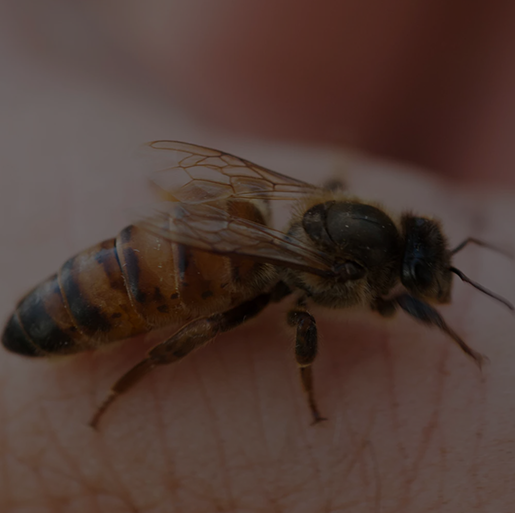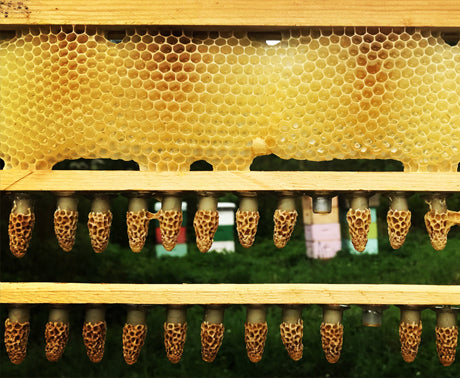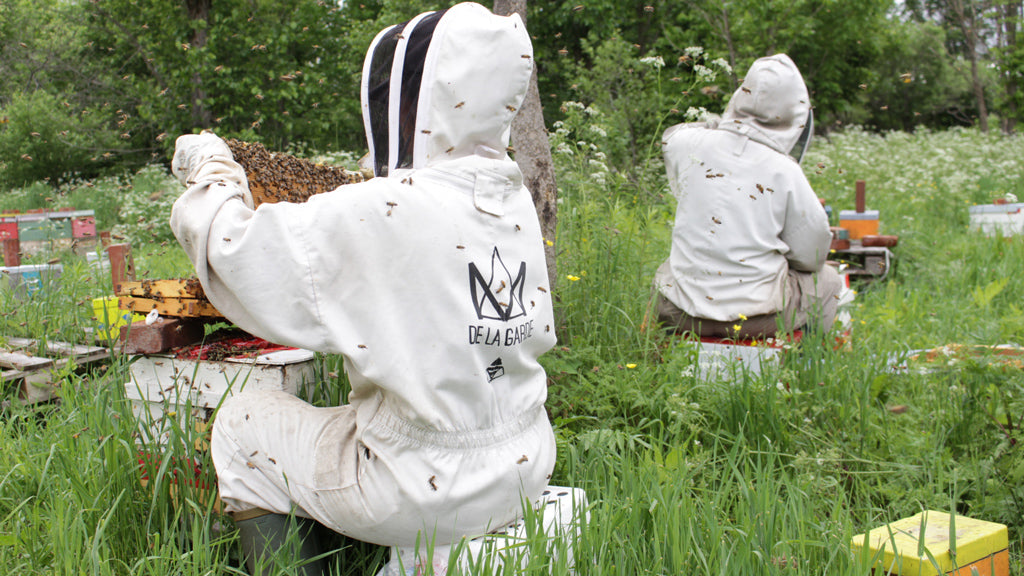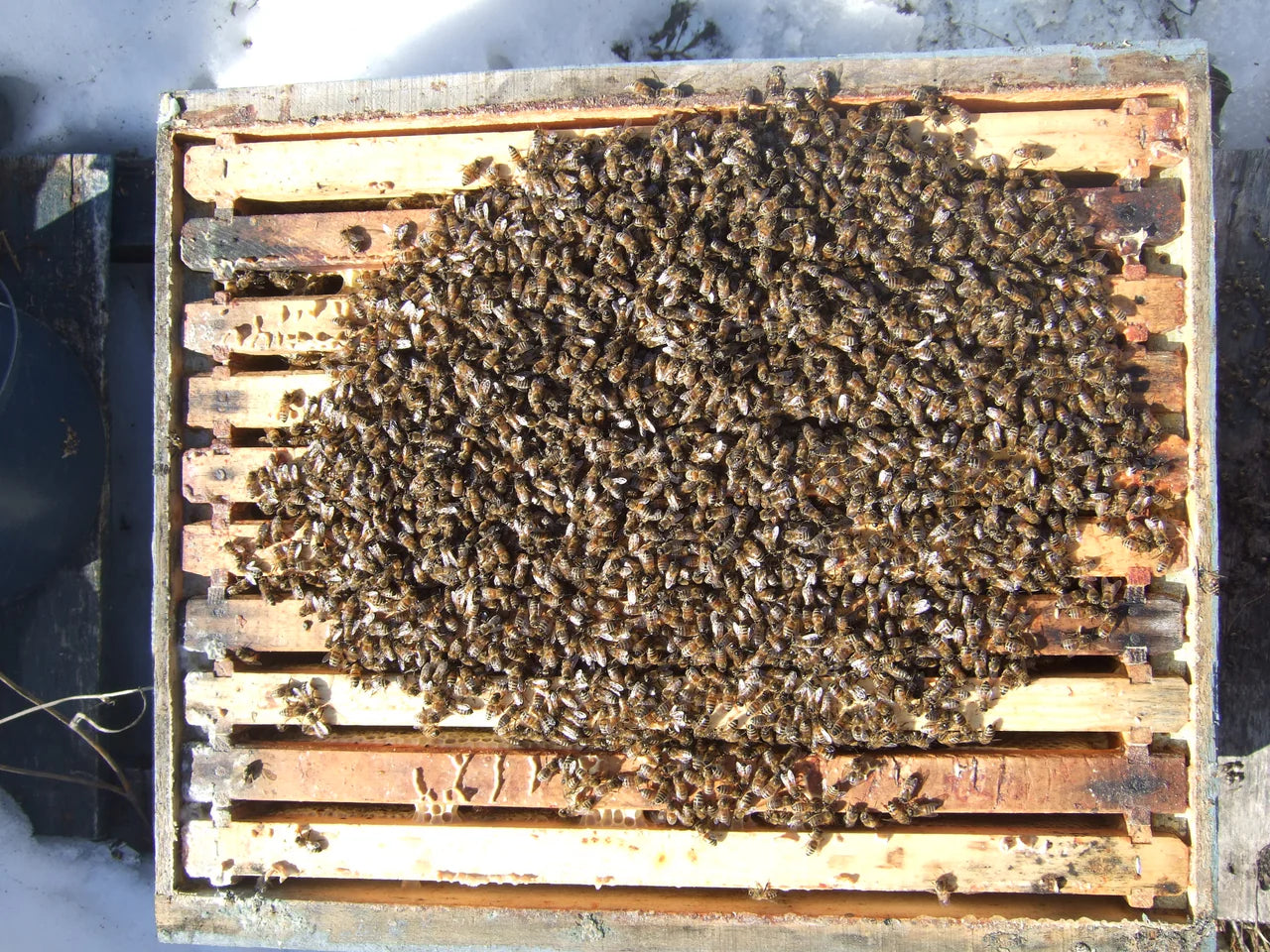For the 2025 season, queen reservations have started.
Order by email (info@mieldelagarde.com) or by phone (579-888-3728) only.
Queen fertilized from our herd.
Our selection criteria are:
- honey production;
- frugality (low resource consumption for wintering);
- hardiness and ability to winter in small clusters;
- hygienic behavior;
- propolis production; and
- docility.
In 2022, 2023, and 2024, we integrated queens from CRSAD into our herd.
Here are the breeds present in the herd: Apis mellifera mellifera, Apis mellifera ligustica, and Apis mellifera carnica.
All our colonies winter outdoors.
To reserve: 579-888-3728
Availability: from mid-June to mid-September, limited quantities.
Unit prices 2025:
1 to 5 queens = $55.00 6 to 20 queens = $49.50 21 to 50 queens = $46.00 +51 queens = $42
Handling and shipping fees ($37) apply for postal delivery.


Orders for nuclei can only be placed by email or phone. Nuclei are available from mid-May to the end of June.
Contact us by email (info@mieldelagarde.com) or phone (579-888-3728) to make your reservation. A deposit of $55 per nucleus is required to secure your booking. Limited quantities available.
DESCRIPTION:Five-frame nucleus, including two to three frames of brood of all ages, one resource frame, and one frame to be built with a mated queen from either the current year or the previous year, always from our own breeding stock. Available in waxed cardboard transport boxes.


Our colonies have been inspected by MAPAQ; a health report is available upon request.
Call 579-888-3728 to check our inventory or to make a reservation.
Genetic lines developed by Miel de la Garde, from a stock of around 500 colonies. Here are our selection criteria:
- Hardiness
- Disease resistance
- Propolis production
- Strong spring development
- Productivity
- Efficient resource use